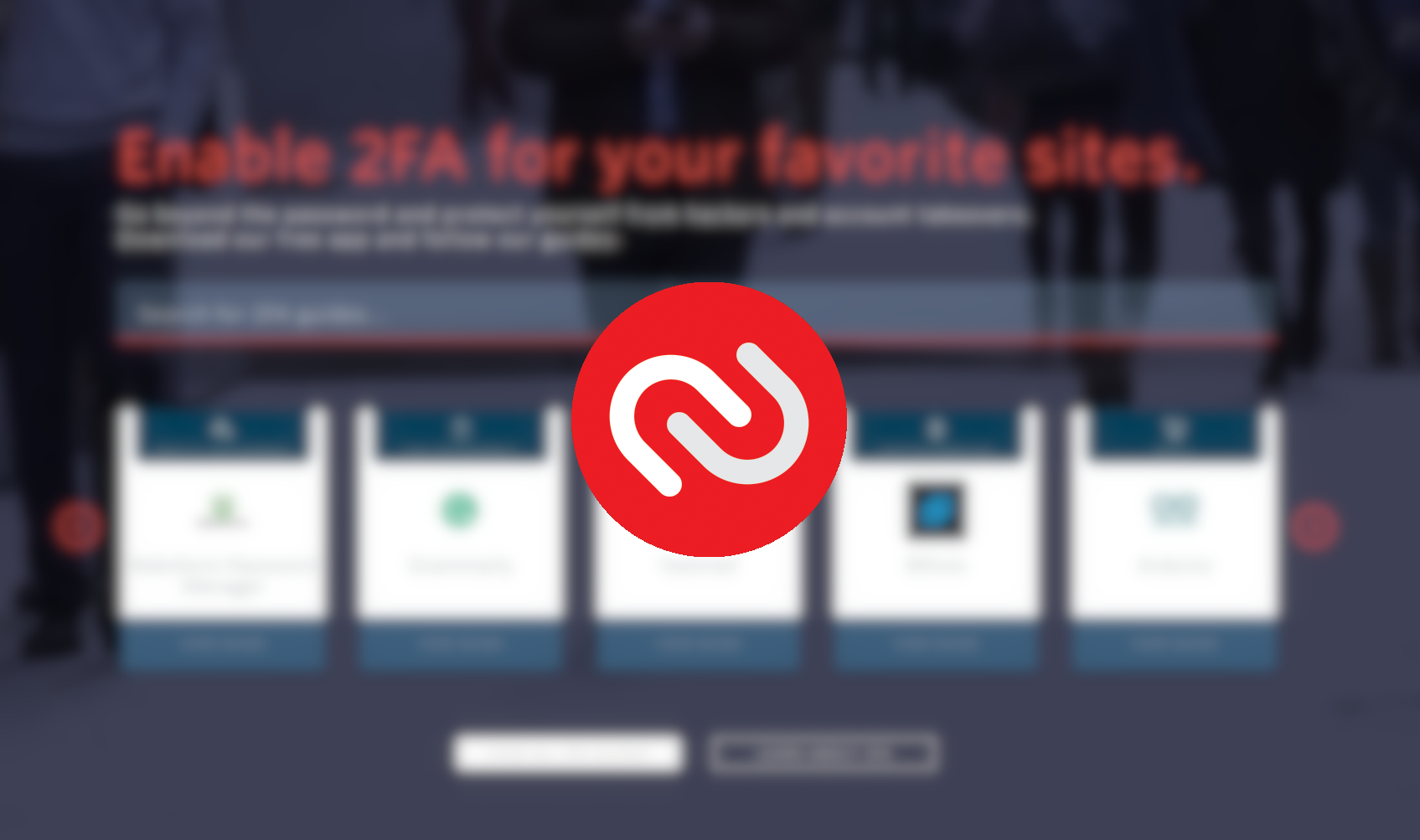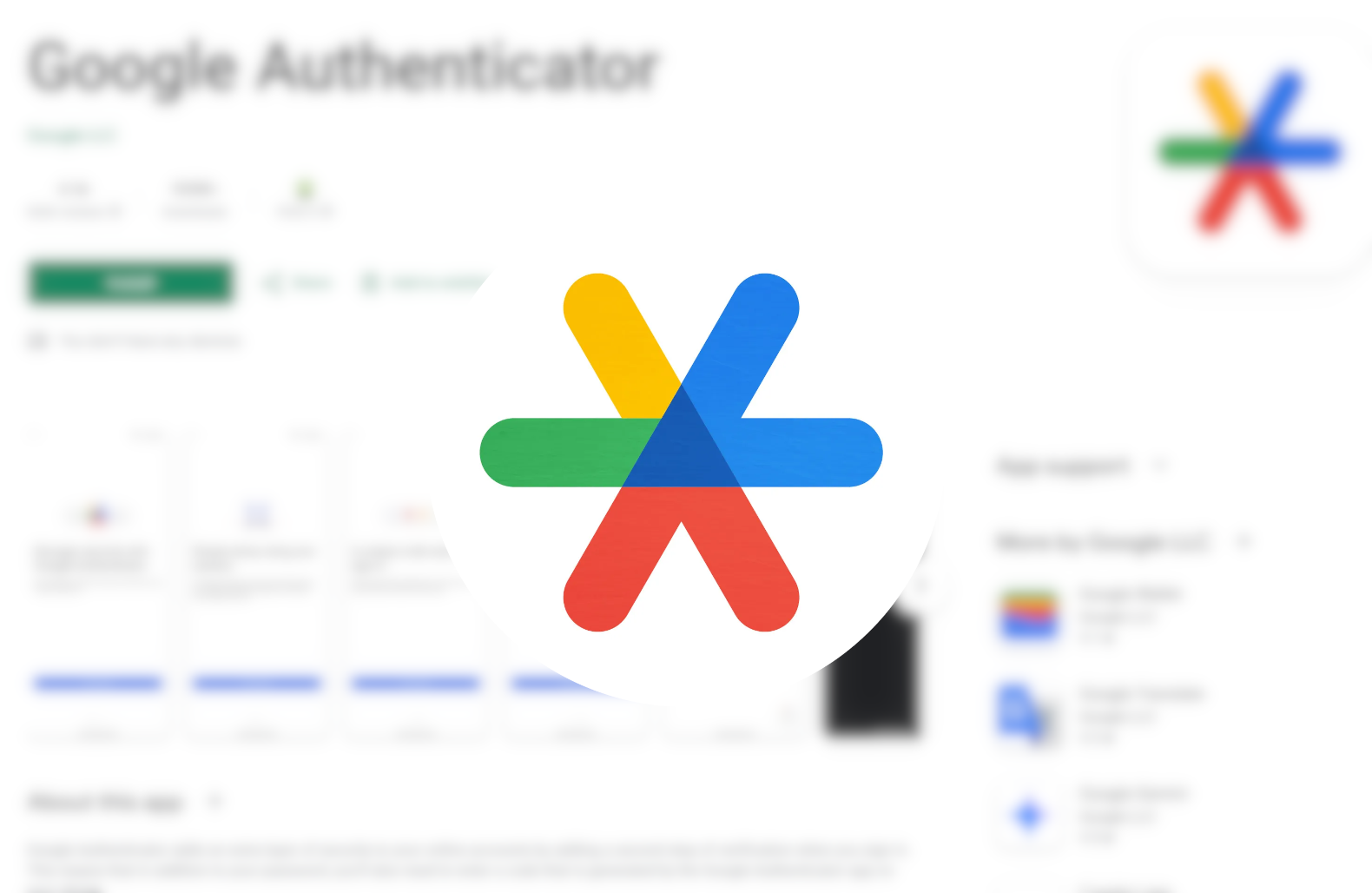As our lives become increasingly digital, online security is becoming more important than ever, and one of the best ways to improve the security of your essential online accounts is to utilize 2-factor authentication (2FA). In this article, we’ll compare Authy vs. Google Authenticator and outline the key differences and similarities between the two popular 2FA apps.
Authy vs Google Authenticator – Which is better?
Authy and Google Authenticator are both 2-factor authentication apps that add an extra layer of security to your online accounts. They both generate time-based one-time passwords (TOTP) that have to be entered in addition to a password or other forms of authentication in order to access an account.
| Authy | Google Authenticator | |
|---|---|---|
| Supported platforms | iOS, Android | iOS, Android |
| Backup options | Encrypted cloud backup accessible with a password | Unencrypted backup through the user’s Google Account |
| Works offline? | Yes | Yes |
| Requires account? | Yes | No |
| Open source? | No | No |
Authy

Authy is a 2-factor authentication app that’s one of the most popular Google Authenticator alternatives on the market.
The Authy app has a backup feature that allows users to easily recover their 2FA data even in the even they lose their phone or it gets stolen. However, it’s worth noting that the backup feature requires the user to create a password that can be used to recover their 2FA data. Backups are an opt-in feature on Authy, so you can disable the feature if you’re not comfortable with it.
Another standout feature of Authy is that it has multi-device support, so you can synchronize your 2FA tokens across multiple devices (for example your mobile phone and your tablet).
Although Authy is overall a very solid 2FA solution, there are some negatives that are important to keep in mind. Authy requires the user to create an account, which includes providing an email address and cellphone number. This might be a dealbreaker for users that prioritize privacy.
We should also highlight that Twilio (the company that owns Authy) suffered a security breach in 2022, which allowed attackers to acces the data of over 100 Twilio customers and Authy users. The breach affected 93 Authy users and allowed attackers to generate login codes.
Google Authenticator

Google Authenticator is a 2FA app that provides a very straightforward user interface. The app features import and export features that make it simple to use Google Authenticator on another device, which comes in handy when you buy a new phone or want to switch to another device.
The Google Authenticator app offers an option to back up your 2FA data to your Google account, allowing you to use the app on multiple devices. However, a notable downside of this backup feature is that it doesn’t use end-to-end encryption. When you backup your data in this way, Google holds the data’s encryption key, which means you have to trust them to keep it safe.
You don’t need to create an account or have a Google account in order to use Google Authenticator.
Alternatives to Authy and Google Authenticator
If you would like to explore for 2FA solutions other than Authy or Google Authenticator, here’s a shortlist of the best alternatives available on the market:
Another option worth considering instead of 2FA apps are hardware security keys, which fulfill a similar role but provide additional security. The most popular hardware security key is YubiKey, but there’s also plenty of YubiKey alternatives to choose from.
The bottom line
The main difference between Authy and Google Authenticator is their approach to backing up the user’s 2FA data. Authy uses an encrypted cloud backup that relies on the user remembering a password. Meanwhile, Google Authenticator backs up 2FA data to the user’s Google Account.
Authy’s approach is likely more robust from a security perspective, but Google Authenticator’s backup feature is more convenient as the user doesn’t have to create and remember a password. Here, we should mention that backups are an opt-in feature on both apps.
Overall, we would give an edge to Google Authenticator since it doesn’t require an account to use. However, both apps are solid and will definitely provide a boost to the security of your online accounts if you’re not using a 2FA solution yet.

